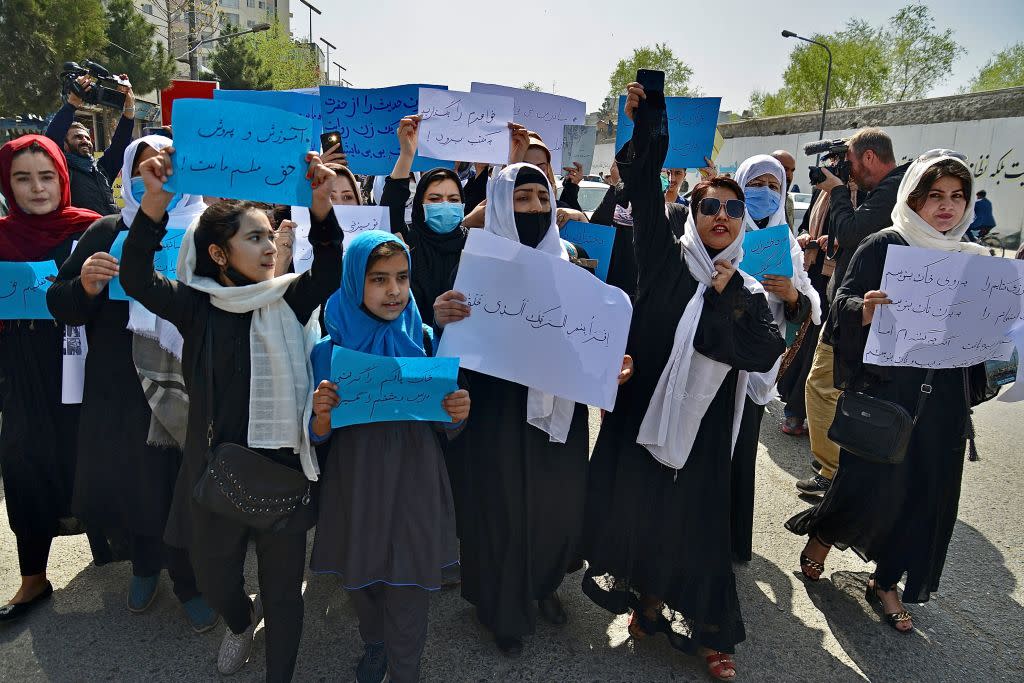
Commissioned by Malala Fund, this Monash University report describes the current dire situation for women and girls in Afghanistan and how international actors can protect and uphold women’s rights and security.
Executive Summary
One year on from the Taliban’s takeover, a “gender apartheid” regime has been reinstituted in Afghanistan. That regime is remarkably similar to that which existed under the Taliban’s 1996-2001 rule. It is central to the Taliban’s consolidation of power internally and across the country. In this paper, we describe the current dire situation for women and girls in Afghanistan as a result and how international actors — not least champions of Feminist Foreign Policy (FFP) — can protect and uphold women’s rights and security. We suggest concrete actions that can be taken, cognisant of the power dynamics at work and the Taliban’s desire for international recognition.
Introduction
The Taliban’s takeover of Afghanistan on 15 August 2021 unravelled significant achievements of the Women, Peace and Security (WPS) agenda in Afghanistan over the last two decades by reinstituting “gender apartheid” through policy guidance and restrictions. Every western donor present in the country since 2001 had pushed the WPS agenda, while the previous Government of Afghanistan adopted a National Action Plan (NAP) on Women, Peace and Security in 2015. However, despite the concerted efforts to implement the NAP by promoting women’s participation in the parliament, in government and the security sectors, and to protect women and girls from gender-based violence and other violations of their human rights, meaningful adaptation and local implementation of WPS was limited in Afghanistan.
The nature of the withdrawal of western forces from Afghanistan under the guise of peace destabilised the modest achievements, erased the public space of struggle for gender equality and paved the way for the return of the Taliban. The swift collapse of the Afghan Government and chaotic exit of international forces laid bare the reality of the "projectification" of the WPS agenda and its impact in Afghanistan. The return of the Taliban through force became inevitable with the signing of the Doha Agreement on 29 February 2020. Moreover, the evacuation process revealed a lack of commitment to protecting women’s rights and women activists in the face of the Taliban takeover and attacks.
Women and girls are facing the most serious crisis of survival based on their gender in Afghanistan. Any future strategy and engagement to support the rights and security of women and girls in Afghanistan must be based on a frank assessment of the meaningfulness of policies and initiatives supporting the WPS agenda. FFP can support this objective by providing an explicitly feminist and transformative framework for supporting women and girls in Afghanistan under the Taliban regime.
This brief provides a post-mortem analysis of the WPS agenda in Afghanistan as a reality check for the international community. It then assesses what can be done by diverse actors — not least champions of FFP — to renew the commitment and efforts to support women’s security and human rights.
